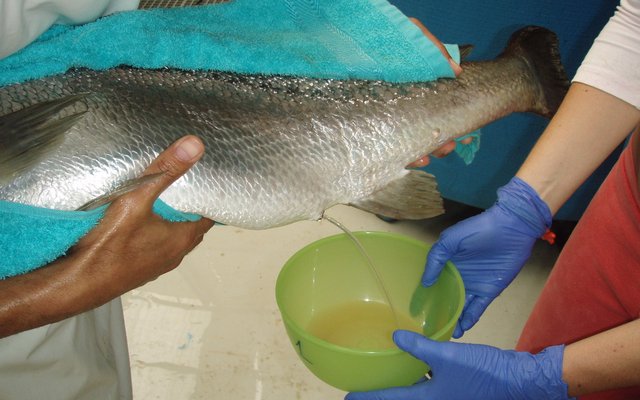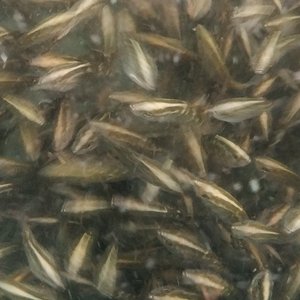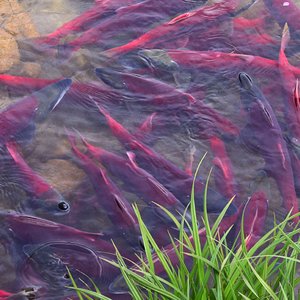Meagre (Argyrosomus regius) is one of the emerging species of the European aquaculture industry. This species undergoes spermatogenesis and spermiation when reared in captivity, but often produces low milt volumes, sometimes with reduced quality and for a limited time period.
A team of European researchers compared the efficiency of gonadotropin releasing hormone agonist (GnRHa) implants versus injections on testicular stimulation and spermiation enhancement and investigated the effect of GnRHa on the endocrine spermiation regulation. Males were injected with 15±0.2 μg GnRHa kg-1 (Injections) or implanted with 51±5.1 μg GnRHa kg-1 (Implant) and compared their sperm production response. The best hormonal treatment (Implant) was tested treating males with 58±7.5 μg GnRHa kg-1 every three weeks for a period of 70 days.
Researchers found that milt production was improved by the GnRHa implants with only minor sperm quality alterations. Elevated plasma testosterone and 11-ketotestosterone levels were recorded in response to GnRHa implants, while no significant difference for 17,20β-dihydroxy-4-pregnen-3-one was observed.
In the commercial induced spawning simulation, it was shown that meagre females are capable of on-demand induction of spawning at random intervals (5-21 days) using GnRHa injections, over a period of at least 2.5 months. During this period, spermiation enhancement was achieved with GnRHa implants every three weeks, producing sperm with stable, in general, quality and motility parameters. Percentage of motile cells, motility duration and density fluctuated significantly, but remained within levels that are considered appropriate for high fertilization success in this species.
“The present study demonstrated that spermiation enhancement in meagre can be achieved with the use of GnRHa implants given every 3 weeks. Consecutive implantations stimulated sperm production for a period of up to 2.5 months, while sperm quality parameters were not affected, indicating that milt of enhanced quantity and standard quality can be produced for a long spermiation period. This may effectively prolong, even slightly, the meagre spawning season for aquaculture purposes,” researchers concluded.
Download the study here.













